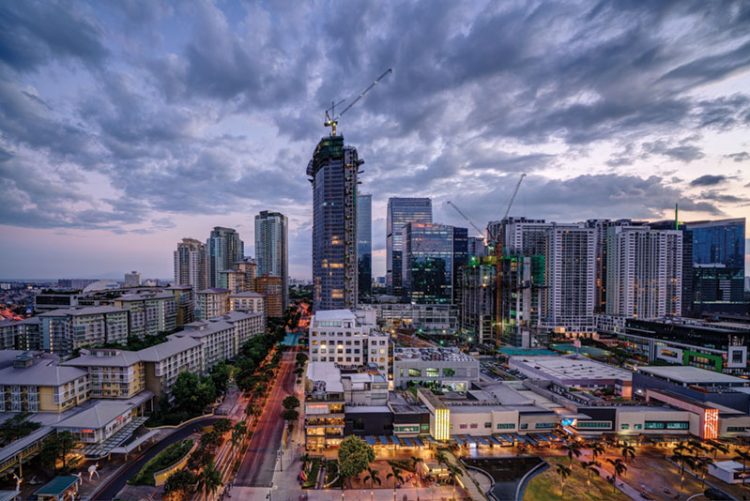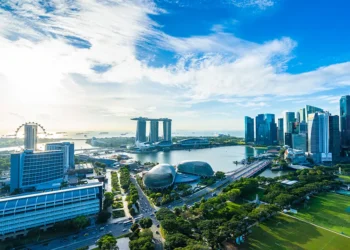Authorities in the Philippines have been working on multiple ways to address serious issues around the POGO industry.
Before the start of the pandemic, Philippine Online Gaming Operator (POGO) reform was already taking place. The most visible signs have surrounded compliance issues including reporting, anti-money laundering and other key aspects to the general operations. However, POGOs have also brought other aspects of governance into the mix, including human trafficking and other seedy behaviors that have been tied to POGOs. The reform of both sets of issues has the potential to craft a better product as the Philippines and other jurisdictions emerge from the “Great Shutdown”.
At the beginning of the Great Shutdown, there were 51 licensed operators through the Philippine Amusement and Gaming Corporation (PAGCOR), but that number has decreased significantly because of the reforms and crackdown that was geared largely toward those who had fallen behind on taxes and have since halted their operations. As of mid-March 2021, this number is down to 38 licensed operators. The same has been experienced among the vast number of authorized agents and service providers, which currently amount to 138 in total.
 In addition to the back tax issue, PAGCOR and the Central Bank already knew they needed to address several other issues to bring these operations to light, along with the service providers that are attached to each POGO. The most important of these was an anti-money laundering bill which took effect earlier this year not only to focus on POGOs and their service providers, but also to monitor the real estate brokers and developers. With the bill, a new Anti-Money Laundering Council (AMLC) was created. This task force was formed to help the Philippines avoid sanctions brought on by the Financial Action Task Force, after the market had already been placed on the watch list by the Asia Pacific Group on Money Laundering.
In addition to the back tax issue, PAGCOR and the Central Bank already knew they needed to address several other issues to bring these operations to light, along with the service providers that are attached to each POGO. The most important of these was an anti-money laundering bill which took effect earlier this year not only to focus on POGOs and their service providers, but also to monitor the real estate brokers and developers. With the bill, a new Anti-Money Laundering Council (AMLC) was created. This task force was formed to help the Philippines avoid sanctions brought on by the Financial Action Task Force, after the market had already been placed on the watch list by the Asia Pacific Group on Money Laundering.
Real estate brokers and developers fall into this mix due to the large percentage of space that POGOs occupy within major urban areas of the Philippines. They are second only to the business process operations (BPO) that dominate the real estate landscape throughout Manila and the surrounding areas. Even though there has been a slowdown in office space needs, POGOs are reportedly still covering more than 1.3 million square-meters of space; the market as a whole contains roughly 7.2 million square-meters of total office space.
During a Senate hearing in March, the AMLC flagged some Php14 billion (US$287 million) in suspicious transactions over the previous two-year period by offshore gaming operators. The hearing proceeded to highlight other aspects within these operations that brought “dirty money” into the country, even into 2021. Senators continued to make accusations that the industry was largely focused on driving revenue as opposed to running clean operations. They also highlighted China’s desire to stop online gambling and Beijing’s continued effort to crack down on these activities outside of their borders.
 Taxation has been debated for several years among other potential reforms to the current system. Much of this has stemmed from the desire to capture more revenue from the industry that was growing exponentially up until the Great Shutdown. Recent reforms to the taxation policy would allow licensed POGOs to be taxed at a rate of 5% of gross gaming revenue, and workers earning over Php600,000 would have a 25% withholding tax. This would replace the taxes generated previously through the franchise taxes, levies and fees. However, existing POGO operators are challenging the new model. While this challenge continues, the revenue from POGOs will have gone down in 2021. This is because of the crackdown and other factors that have driven operators from the market, but also because of the current economic conditions of the industry. Current estimates show that POGO revenue in 2021 will decrease by about 50%. POGOs workers also continue to be a problem because of the number of foreign workers that are in the country, particularly Chinese workers. In 2020, the Department of Labor and Employment (DOLE) stated that that over 200,000 POGO workers had been issued foreign work permits in the previous two years. Over 60% of those were in 2019, but remarkably the other 40% were from 2020. This number is higher than what is reported by PAGCOR, which perhaps points to the human trafficking issue.
Taxation has been debated for several years among other potential reforms to the current system. Much of this has stemmed from the desire to capture more revenue from the industry that was growing exponentially up until the Great Shutdown. Recent reforms to the taxation policy would allow licensed POGOs to be taxed at a rate of 5% of gross gaming revenue, and workers earning over Php600,000 would have a 25% withholding tax. This would replace the taxes generated previously through the franchise taxes, levies and fees. However, existing POGO operators are challenging the new model. While this challenge continues, the revenue from POGOs will have gone down in 2021. This is because of the crackdown and other factors that have driven operators from the market, but also because of the current economic conditions of the industry. Current estimates show that POGO revenue in 2021 will decrease by about 50%. POGOs workers also continue to be a problem because of the number of foreign workers that are in the country, particularly Chinese workers. In 2020, the Department of Labor and Employment (DOLE) stated that that over 200,000 POGO workers had been issued foreign work permits in the previous two years. Over 60% of those were in 2019, but remarkably the other 40% were from 2020. This number is higher than what is reported by PAGCOR, which perhaps points to the human trafficking issue.
Issues still remain on the employment front, as foreign workers are brought into the Philippines to keep up with these operations. Recent reports detail even the “selling” of workers between different service providers. Most of these individuals are Chinese nationals but have come from other regions of Asia, even leading to kidnappings. A recent report highlighted a Taiwanese national who had been traded between POGOs.

While the POGO industry continues to evolve, significant reform will need to take place. The government continues to take the right steps to curb anti-money laundering and implement tax reform. No gaming operator in the Philippines or anywhere else should be void of paying taxes on their gross gaming revenue.
However, the more disturbing thing that continues to plague POGOs is the employment and human trafficking issues. POGOs could be a strong source of revenue for PAGCOR in addition to its brick-and-mortar casinos but they need to be wrangled in the right manner so they can become respectable operations conducted by responsible operators and service providers. Until this occurs, they will continue to boast an unsavory reputation and one that will dissuade other markets around the world from launching online gaming as a revenue source due to the problems associated with it in the Philippines.
































